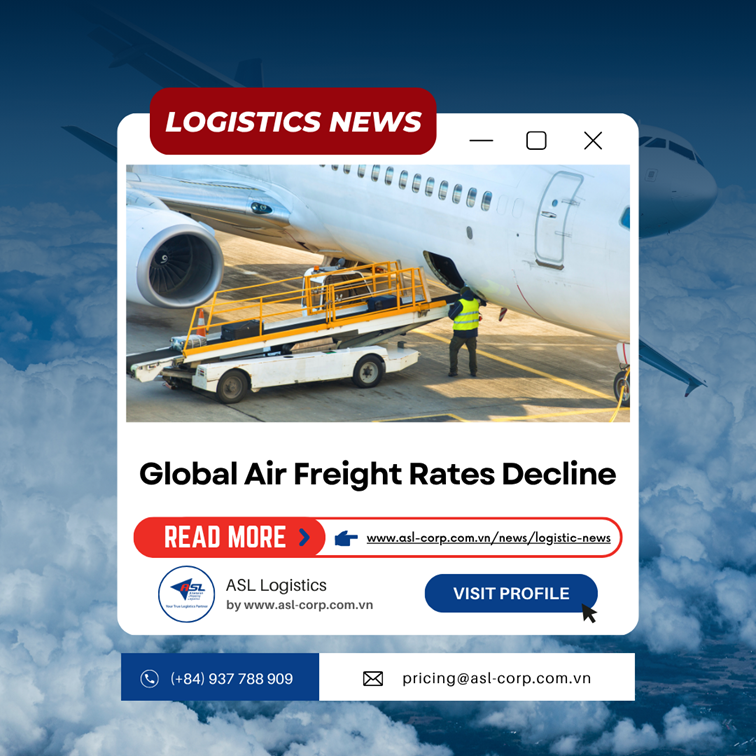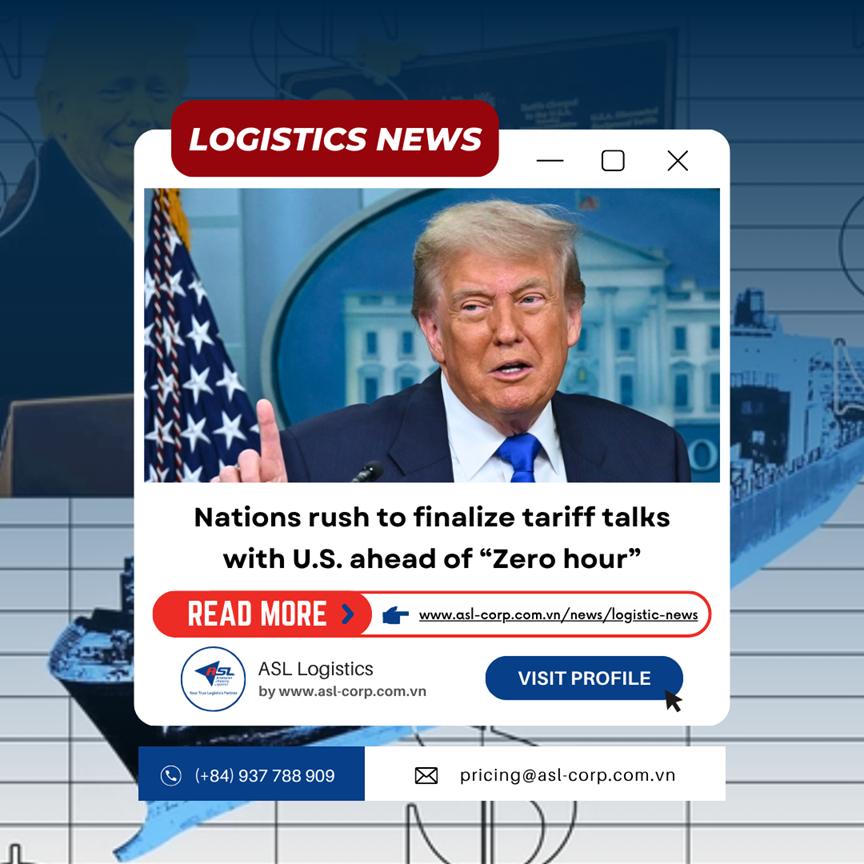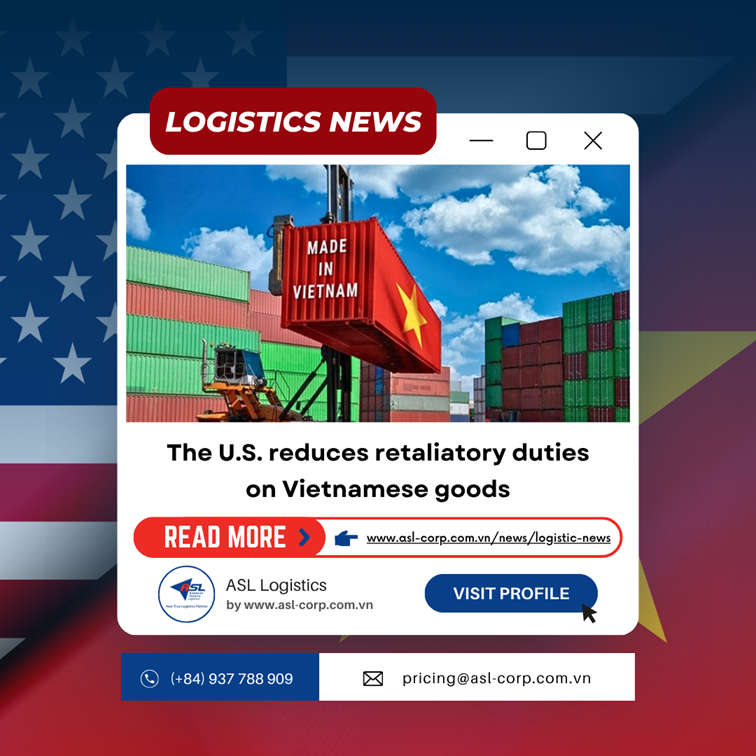Logistic News
THE NEW TAX POLICY OF THE US: AN OPPORTUNITY TO REPOSITION VIETNAMESE GOODS IN THE EU MARKET
05 April 2025
The new tax policy of the United States, although a major challenge, also presents an opportunity for Vietnam to diversify its markets, reduce dependence on the U.S. and short-term orders, and shift its competitive model from low price to quality, sustainability, and traceability...
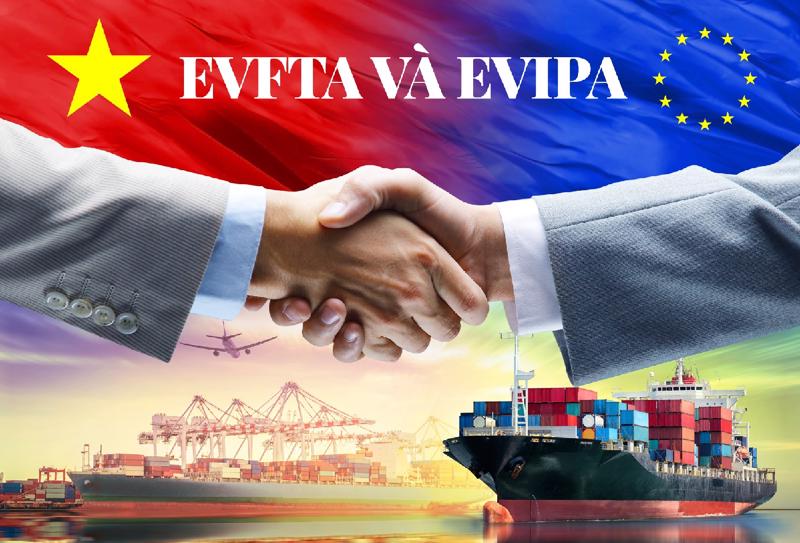
Amidst the rising tide of trade barriers and protectionism, the EVFTA (EU-Vietnam Free Trade Agreement) has become a strategic shield to help Vietnamese goods maintain a strong presence in Europe.
On April 2, 2025, U.S. President Donald Trump announced a series of large-scale "countervailing" tariffs on imports from over 100 countries. Vietnam was imposed a high tariff rate of 46%, along with China, Cambodia, Indonesia, Myanmar, and others. Meanwhile, the European Union (EU) also faces a 20% tariff.
These tariffs are expected to take effect as early as next week, creating ripple effects throughout the global trade system.
Following the tariff announcement, the U.S. dollar sharply depreciated due to concerns that this policy would slow U.S. economic growth. The U.S. has now reached its highest effective tariff rates since the 1940s, leading to consequences such as: core inflation potentially rising to 2.3% in 2025; a significant reduction in purchasing power and consumption, which in turn slows imports of goods. Major trade partners like the EU, China, Japan, and others are preparing retaliatory measures, which could disrupt supply chains and stall global trade.
EXCHANGE RATES SHIFTING IN FAVOR OF VIETNAMESE GOODS
According to Ms. Nguyễn Thị Hoàng Thúy, Vietnam's Trade Counselor in Sweden, also covering Denmark, Norway, Iceland, and Latvia, global trade has not yet fully recovered from the pandemic and the energy crisis, and now faces a new shock from the U.S. protectionist policy. This impacts Vietnam’s exports to the EU and Northern Europe, increasing competition pressure, but also presents an opportunity for Vietnamese goods to penetrate the EU market.
Analyzing in more detail, Ms. Thúy said that Vietnamese goods can become more competitive in Northern Europe thanks to favorable exchange rates. The U.S. dollar has depreciated, while the Swedish krona has risen significantly, with the exchange rate currently at 9.85 SEK/USD, the highest since June 2022. This means that goods priced in USD are becoming cheaper for Swedish consumers, improving price competitiveness. However, the extent of this benefit depends on Vietnamese businesses' ability to maintain stable prices without increasing USD-based prices. Additionally, certain sectors, such as textiles, leather, seafood, wooden products, and handicrafts, need to be cautious as they have low profit margins and are easily affected by fluctuations in raw material costs, logistics, and consumer demand. Particularly, with inflation rising in Europe and Northern Europe, consumers are tightening their spending, which could reduce orders or lead to price cuts for non-essential goods or those with low added value.
Therefore, while the exchange rate is favorable, businesses still need to actively control costs, maintain price stability, and improve product quality and standards to sustain and expand their market share in premium markets like Northern Europe.
EVFTA: A STRATEGIC ADVANTAGE AMIDST VOLATILITY
Amid rising trade barriers and protectionism, the Vietnam Trade Counselor in Sweden views the EU-Vietnam Free Trade Agreement (EVFTA) as a strategic shield that helps Vietnamese goods retain their position in Europe. The sectors directly benefiting include: textiles, leather; seafood, processed agricultural products; wooden products, handicrafts; electrical and electronic equipment. In Northern Europe, where consumers prioritize sustainable, green, and transparent products, Vietnamese businesses can enhance their advantage by investing in certifications like eco-labels, traceability, or verifying their carbon footprint.
Furthermore, the Trade Counselor representative in Sweden is optimistic that while the new U.S. tax policy is a significant challenge, it also offers an opportunity for Vietnam to diversify markets, reduce dependence on the U.S., and lessen reliance on short-term orders. At the same time, it enables a shift from a low-cost competitive model to one based on quality, sustainability, and traceability.
Vietnamese businesses are motivated to invest in European standards, such as eco-labels, carbon footprints, or CSR certifications, to gain the trust of Northern European consumers. They can also optimize the EVFTA by leveraging tax incentives and positioning Vietnamese products as a "reliable alternative" in global supply chains.
According to Ms. Thúy, the U.S. countervailing tax policy is creating a systemic disruption in global trade, potentially leading to a broad recession and global disruptions. Therefore, while large countries continue to debate how to respond, Vietnamese businesses must proactively adapt.
With political stability and the EVFTA cooperation framework, the EU and Northern Europe are emerging as strategic gateways for Vietnam's exports. The key is for businesses not only to "weather the storm" but also to seize the opportunity to reposition Vietnamese goods on the global trade map—not just as cheap, but as quality, green, and
Source: VnEconomy

Head Office
ASL Hồ Chí Minh
Số 31/34A Ung Văn Khiêm, Phường Thạnh Mỹ Tây, TP. Hồ Chí Minh, Việt Nam
 Công Ty Cổ Phần Giao Nhận Vận Tải Mỹ Á
Công Ty Cổ Phần Giao Nhận Vận Tải Mỹ Á
 (+84)28 3512 9759
(+84)28 3512 9759
 (+84)28 3512 9758
(+84)28 3512 9758
 pricing@asl-corp.com.vn
pricing@asl-corp.com.vn
 mdirector@asl-corp.com.vn
mdirector@asl-corp.com.vn
 www.asl-corp.com.vn
www.asl-corp.com.vn
LOGISTICS SERVICES










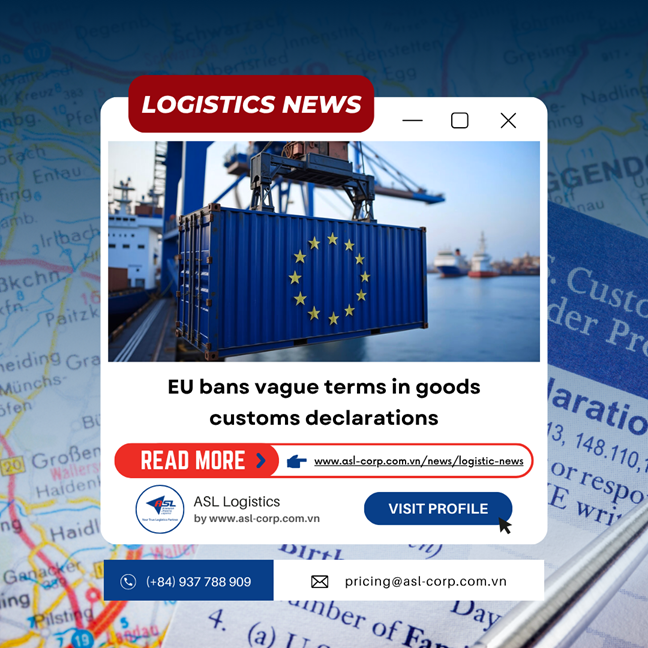
.png)
.png)

.png)

